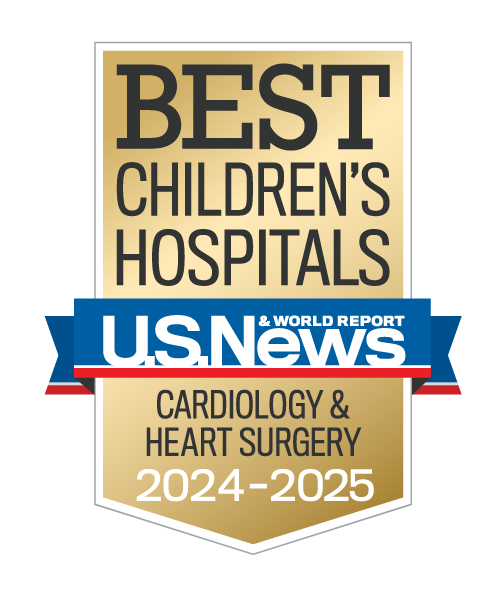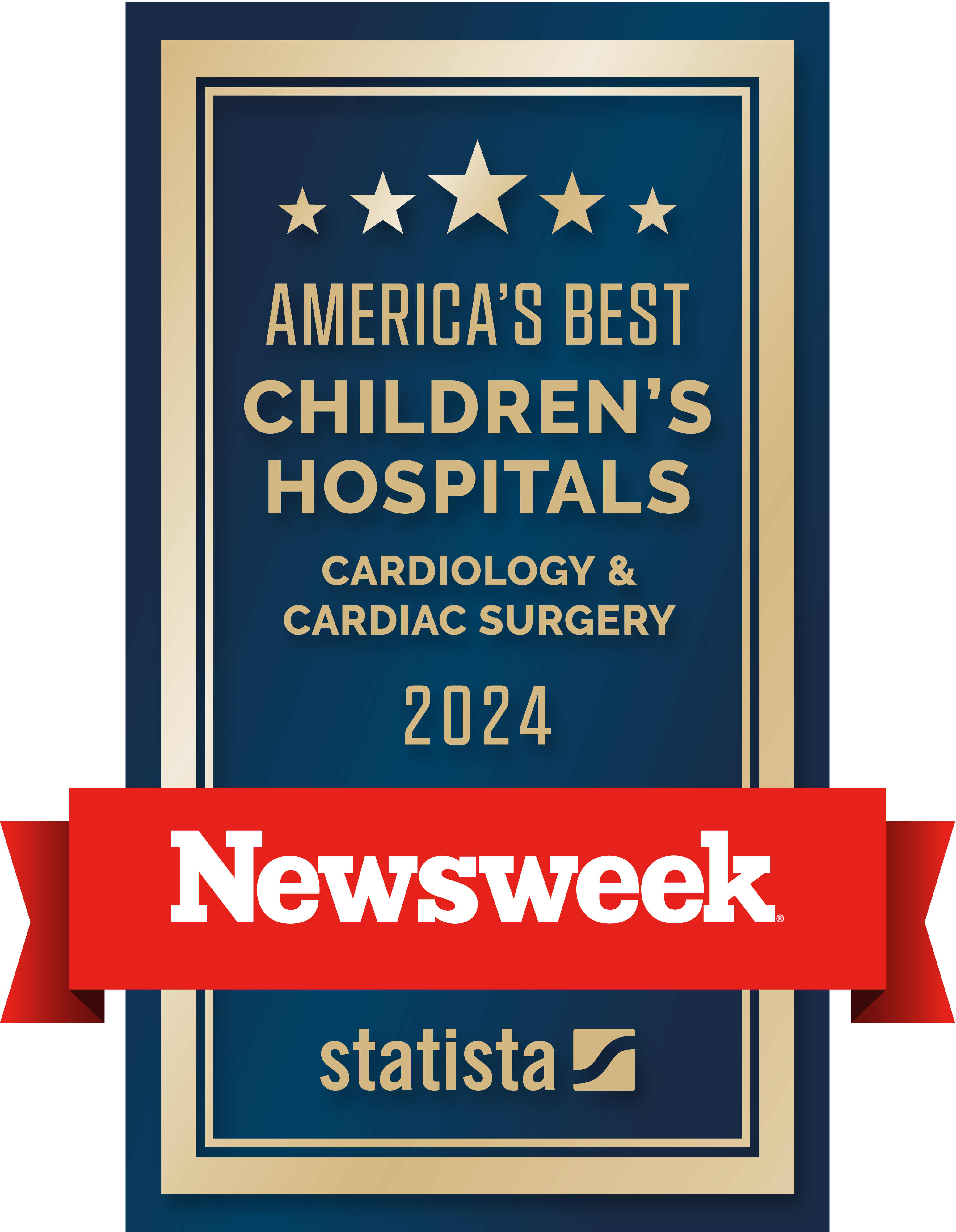The Fetal Cardiology Program at Boston Children’s provides expert evaluation, diagnosis, and treatment of a fetus with congenital heart defects (CHD) and other heart problems before they are born.
Learning there is a heart problem during pregnancy is difficult. That is why from your first visit to the day of delivery and beyond, we are there for your family. Our team of cardiologists, nurse practitioners, nurses, sonographers, and social workers has the expertise and experience to provide your family with the best possible care.
Your early diagnosis lets us prepare a comprehensive prenatal and postnatal care plan. In unique patients, a care plan might include fetal therapy, either with medications or through fetal cardiac intervention — an in utero procedure to treat serious conditions such as aortic valve stenosis with evolving hypoplastic left heart syndrome (HLHS).
Why the Fetal Cardiology Program?
When families receive a CHD diagnosis early in pregnancy, they have time to seek expert fetal cardiology care and choose a top-ranked pediatric cardiac surgical program. The Fetal Cardiology Program at Boston Children’s is just that: We have extensive knowledge and experience to care for the fetal heart. In 2001, we performed the first successful fetal cardiac intervention in the U.S. We continue to advance the field and fully support families like yours by combining clinical excellence, advanced research and innovation, and empathetic counseling and education. It’s a critical time for your family, and we’re in the best position to provide help, support, and answers.
Comprehensive fetal cardiology care includes:
- Expert fetal echocardiogram imaging and diagnosis of fetal heart problems
- Multidisciplinary prenatal counseling and education about the diagnosis and road ahead
- Explanation and overview of treatment options
- Coordinated high-risk delivery planning
- In utero fetal cardiac intervention
- In utero fetal cardiology therapy treatments with medications
- An abundance of services to support your family throughout your pregnancy and after delivery
When heart defects are diagnosed before birth, families can feel stressed about the health of the fetus and an unknown future. We understand those concerns. It’s why, alongside our commitment to top clinical care, we will also work to decrease your family’s stress by providing compassionate counseling on the diagnosis, possible treatments, high-risk delivery coordination, and expert post-delivery cardiology and cardiac surgery care.
We also understand it might sometimes be difficult to retain all the information you will learn during your fetal cardiology consult and other visits. To help, we have created various educational materials to help guide you through the journey.

An expectant parent’s guide to HLHS & other single ventricle defects
Terra Lafranchi, NP-C, our Fetal Cardiology coordinator, authored the book, “An Expectant Parent’s Guide to Hypoplastic Left Heart Syndrome and Other Single Ventricle Defects.”
Innovative treatment options
Our fetal and pediatric cardiology researchers are focused on improving our department’s understanding and treatment of CHD. They work quickly to move discoveries to the bedside and operating room so you can have access to the most advanced care possible.
For example, in 2001, innovation guided our teams as they performed the first successful fetal cardiac intervention in the U.S. to treat severe aortic valve stenosis with evolving HLHS. Now a standard treatment, it may give a child a biventricular or two-ventricle circulation after birth. Innovations like that define our internationally recognized program and make us the leader in the development of fetal cardiac intervention.

A fetal cardiac intervention is a needle- and catheter-based procedure that can treat life-threatening heart problems in a fetus. While a fetus is in utero, cardiologists can carefully and precisely treat a variety of congenital heart defects that could otherwise cause serious health problems or may be fatal.
In utero fetal cardiology treatments include:
- Balloon aortic valve dilation for aortic stenosis with evolving hypoplastic left heart syndrome
- Balloon pulmonary valve dilation for pulmonary valve atresia with intact ventricular septum (PAIVS) with evolving hypoplastic right heart syndrome
- Stent dilation of the atrial septum for hypoplastic left heart syndrome with an intact atrial septum
- Medical therapy for severe fetal Ebstein's anomaly
- Medical therapy for rapid heart rate conditions such as fetal atrial flutter and supraventricular tachycardia (SVT)
- Medical therapy for fetal heart block


